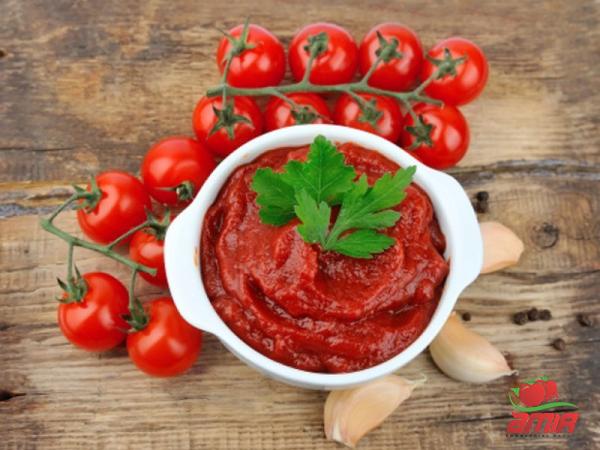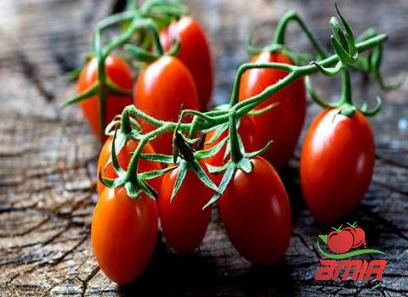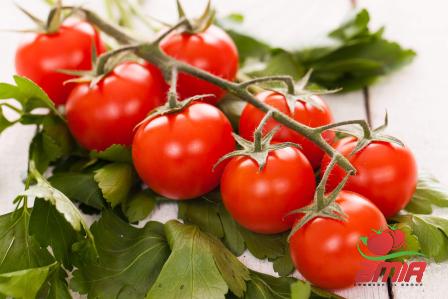The Rise of Organic Tomato Paste Organic tomato paste has gained significant popularity in recent years due to its numerous health benefits and superior taste. Made from freshly harvested organic tomatoes that are carefully processed, organic tomato paste has become a staple ingredient in many kitchens around the world. Organic tomato paste differs from its conventional counterpart in that it is produced using organic farming methods. This means that the tomatoes used to make the paste are grown without the use of synthetic pesticides, herbicides, or genetically modified organisms (GMOs). By eliminating these chemicals from the cultivation process, organic tomato paste ensures the preservation of the environment, as well as the overall health and safety of consumers. One of the primary reasons for the growing demand for organic tomato paste is its higher nutritional value compared to conventional tomato paste. Organic tomatoes are typically richer in vitamins, minerals, and antioxidants due to the absence of chemical interference during cultivation. The higher nutrient content in organic tomato paste contributes to its reputation as a healthier option for consumers who prioritize their well-being. Furthermore, organic tomato paste offers a distinct and superior flavor profile compared to its conventional counterpart. The organic cultivation methods used to produce the tomatoes focus on enhancing the natural flavor of the fruit and preserving its essence. This dedication to quality and taste is evident in the final product, making organic tomato paste an excellent choice for those seeking superior flavor in their dishes. In addition to its health benefits and superior taste, organic tomato paste also supports sustainable agriculture and protects the environment. The organic farming methods used to grow the tomatoes for organic tomato paste reduce water contamination, soil erosion, and greenhouse gas emissions. These practices prioritize the preservation of natural resources and foster a more sustainable future for farming.

tomato paste
 As the demand for organic food products continues to rise, the market for organic tomato paste has experienced substantial growth. Consumers are becoming more conscious of the potential health risks associated with conventional farming practices and are increasingly seeking out organic alternatives. The availability of organic tomato paste in grocery stores, specialty food stores, and online marketplaces has significantly expanded, catering to the growing demand for this product. Food manufacturers and foodservice providers have also recognized the shift in consumer preferences towards organic products, including tomato paste. As a result, many companies have expanded their organic product lines and are incorporating organic tomato paste into their recipes and menu offerings. This shift towards organic options aligns with the wider movement towards sustainability and healthy eating. In conclusion, organic tomato paste has gained popularity due to its numerous health benefits, superior taste, and support for sustainable agriculture. Its higher nutritional value, distinct flavor profile, and commitment to organic farming practices have made it a preferred choice for health-conscious consumers worldwide. With increasing demand for organic food products, the market for organic tomato paste continues to grow, providing consumers with a healthier and more sustainable option for their culinary needs.The Benefits of Organic Tomato Paste Organic tomato paste offers a range of benefits that make it an attractive choice for both consumers and businesses. In this section, we will explore the various advantages of using and selling organic tomato paste. 1. Health Benefits: Organic tomato paste is known for its higher nutritional content compared to conventional tomato paste. It is a rich source of vitamins A, C, and K, as well as minerals like potassium and iron. These essential nutrients play a vital role in supporting a healthy immune system, maintaining healthy vision, and promoting proper blood clotting. By incorporating organic tomato paste into their diet, consumers can reap these health benefits and improve their overall well-being. 2. Superior Taste: One of the distinguishing factors of organic tomato paste is its superior taste. The organic cultivation methods used to grow the tomatoes prioritize flavor enhancement, resulting in a more robust and authentic taste. The intense and concentrated flavor of organic tomato paste can elevate the taste of any dish it is added to, making it a favorite among professional chefs and home cooks alike.
As the demand for organic food products continues to rise, the market for organic tomato paste has experienced substantial growth. Consumers are becoming more conscious of the potential health risks associated with conventional farming practices and are increasingly seeking out organic alternatives. The availability of organic tomato paste in grocery stores, specialty food stores, and online marketplaces has significantly expanded, catering to the growing demand for this product. Food manufacturers and foodservice providers have also recognized the shift in consumer preferences towards organic products, including tomato paste. As a result, many companies have expanded their organic product lines and are incorporating organic tomato paste into their recipes and menu offerings. This shift towards organic options aligns with the wider movement towards sustainability and healthy eating. In conclusion, organic tomato paste has gained popularity due to its numerous health benefits, superior taste, and support for sustainable agriculture. Its higher nutritional value, distinct flavor profile, and commitment to organic farming practices have made it a preferred choice for health-conscious consumers worldwide. With increasing demand for organic food products, the market for organic tomato paste continues to grow, providing consumers with a healthier and more sustainable option for their culinary needs.The Benefits of Organic Tomato Paste Organic tomato paste offers a range of benefits that make it an attractive choice for both consumers and businesses. In this section, we will explore the various advantages of using and selling organic tomato paste. 1. Health Benefits: Organic tomato paste is known for its higher nutritional content compared to conventional tomato paste. It is a rich source of vitamins A, C, and K, as well as minerals like potassium and iron. These essential nutrients play a vital role in supporting a healthy immune system, maintaining healthy vision, and promoting proper blood clotting. By incorporating organic tomato paste into their diet, consumers can reap these health benefits and improve their overall well-being. 2. Superior Taste: One of the distinguishing factors of organic tomato paste is its superior taste. The organic cultivation methods used to grow the tomatoes prioritize flavor enhancement, resulting in a more robust and authentic taste. The intense and concentrated flavor of organic tomato paste can elevate the taste of any dish it is added to, making it a favorite among professional chefs and home cooks alike.
Specifications of tomato paste
 3. Environmental Sustainability: Organic farming practices adopted in the production of organic tomato paste prioritize environmental sustainability. These practices eliminate the use of synthetic pesticides and fertilizers, which can have harmful effects on soil quality, water systems, and beneficial insects. By choosing organic tomato paste, businesses can contribute to a greener and more sustainable food system, reducing their environmental footprint. 4. Growing Consumer Demand: There is a growing consumer demand for organic food products, including tomato paste. According to a report by the Organic Trade Association, organic food sales reached $50.1 billion in 2019, reflecting a steady increase in consumer preference for organic options. By offering organic tomato paste, businesses can tap into this expanding market and cater to the needs and preferences of health-conscious consumers. 5. Market Differentiation: In a competitive market, offering organic tomato paste can provide businesses with a unique selling proposition and a competitive edge. By differentiating themselves from conventional tomato paste brands, businesses can target a specific segment of consumers who prioritize organic and healthy food options. This differentiation can help attract new customers and build customer loyalty. 6. Meeting Dietary Preferences and Restrictions: Many individuals have specific dietary preferences or restrictions, such as vegetarian, vegan, gluten-free, or dairy-free diets. Organic tomato paste serves as an excellent option for these individuals as it is free from animal-based ingredients, gluten, and other allergens. By offering organic tomato paste, businesses can cater to a broader range of dietary needs and preferences, expanding their customer base. 7. Versatile Ingredient: Organic tomato paste is a versatile ingredient that can be used in a wide variety of dishes. It serves as a base for sauces, soups, stews, and a variety of other recipes. Its concentrated form adds depth and richness to dishes, enhancing their flavor profile. Businesses can leverage this versatility by highlighting the numerous culinary uses of organic tomato paste, encouraging customers to explore new recipes and applications.
3. Environmental Sustainability: Organic farming practices adopted in the production of organic tomato paste prioritize environmental sustainability. These practices eliminate the use of synthetic pesticides and fertilizers, which can have harmful effects on soil quality, water systems, and beneficial insects. By choosing organic tomato paste, businesses can contribute to a greener and more sustainable food system, reducing their environmental footprint. 4. Growing Consumer Demand: There is a growing consumer demand for organic food products, including tomato paste. According to a report by the Organic Trade Association, organic food sales reached $50.1 billion in 2019, reflecting a steady increase in consumer preference for organic options. By offering organic tomato paste, businesses can tap into this expanding market and cater to the needs and preferences of health-conscious consumers. 5. Market Differentiation: In a competitive market, offering organic tomato paste can provide businesses with a unique selling proposition and a competitive edge. By differentiating themselves from conventional tomato paste brands, businesses can target a specific segment of consumers who prioritize organic and healthy food options. This differentiation can help attract new customers and build customer loyalty. 6. Meeting Dietary Preferences and Restrictions: Many individuals have specific dietary preferences or restrictions, such as vegetarian, vegan, gluten-free, or dairy-free diets. Organic tomato paste serves as an excellent option for these individuals as it is free from animal-based ingredients, gluten, and other allergens. By offering organic tomato paste, businesses can cater to a broader range of dietary needs and preferences, expanding their customer base. 7. Versatile Ingredient: Organic tomato paste is a versatile ingredient that can be used in a wide variety of dishes. It serves as a base for sauces, soups, stews, and a variety of other recipes. Its concentrated form adds depth and richness to dishes, enhancing their flavor profile. Businesses can leverage this versatility by highlighting the numerous culinary uses of organic tomato paste, encouraging customers to explore new recipes and applications.
buy tomato paste
 8. Premium Pricing: Organic food products typically command a higher price point compared to conventional options. By offering organic tomato paste, businesses can position themselves as providers of premium products, allowing them to charge a premium price. This premium pricing helps businesses generate higher profit margins and offset any additional costs associated with organic farming practices. 9. Corporate Social Responsibility: As consumers become more environmentally and socially conscious, businesses are under increasing pressure to demonstrate their corporate social responsibility. By offering organic tomato paste, businesses can show their commitment to sustainable farming practices, support for local farmers, and the well-being of their customers. This dedication to responsible business practices can enhance the brand image and foster customer loyalty. 10. Collaboration with Organic Suppliers: The production of organic tomato paste necessitates collaboration with organic suppliers, such as organic tomato farmers and processors. By working with these suppliers, businesses can establish mutually beneficial partnerships and contribute to the growth of the organic farming industry. This collaboration can lead to a more reliable and consistent supply of high-quality organic tomato paste, ensuring customer satisfaction and business success. 11. Expansion into Organic Product Lines: Businesses in the food industry can leverage the growing demand for organic products by expanding their organic product lines. By offering organic tomato paste alongside other organic ingredients and food products, businesses can cater to the needs and preferences of health-conscious consumers and position themselves as leaders in the organic food market. 12. Access to Ethical and Sustainable Certifications: Organic tomato paste production often adheres to strict certification standards. By offering organic tomato paste from certified sources, businesses can gain access to ethical and sustainable certifications, such as USDA Organic, Non-GMO Project Verified, or Fair Trade certifications. These certifications provide assurance to customers that the products they are purchasing meet rigorous environmental and social standards, enhancing their trust in the brand. In conclusion, organic tomato paste offers numerous benefits for both consumers and businesses. With its higher nutritional content, superior taste, and support for environmental sustainability, organic tomato paste serves as a healthier and more sustainable option for consumers. Businesses can tap into the growing demand for organic food products, differentiate themselves in the market, and generate higher profit margins by offering organic tomato paste. Additionally, businesses can demonstrate their commitment to corporate social responsibility, expand their product lines, and forge partnerships with organic suppliers. By incorporating organic tomato paste into their offerings, businesses can position themselves at the forefront of the organic food movement and meet the evolving needs and preferences of health-conscious consumers.
8. Premium Pricing: Organic food products typically command a higher price point compared to conventional options. By offering organic tomato paste, businesses can position themselves as providers of premium products, allowing them to charge a premium price. This premium pricing helps businesses generate higher profit margins and offset any additional costs associated with organic farming practices. 9. Corporate Social Responsibility: As consumers become more environmentally and socially conscious, businesses are under increasing pressure to demonstrate their corporate social responsibility. By offering organic tomato paste, businesses can show their commitment to sustainable farming practices, support for local farmers, and the well-being of their customers. This dedication to responsible business practices can enhance the brand image and foster customer loyalty. 10. Collaboration with Organic Suppliers: The production of organic tomato paste necessitates collaboration with organic suppliers, such as organic tomato farmers and processors. By working with these suppliers, businesses can establish mutually beneficial partnerships and contribute to the growth of the organic farming industry. This collaboration can lead to a more reliable and consistent supply of high-quality organic tomato paste, ensuring customer satisfaction and business success. 11. Expansion into Organic Product Lines: Businesses in the food industry can leverage the growing demand for organic products by expanding their organic product lines. By offering organic tomato paste alongside other organic ingredients and food products, businesses can cater to the needs and preferences of health-conscious consumers and position themselves as leaders in the organic food market. 12. Access to Ethical and Sustainable Certifications: Organic tomato paste production often adheres to strict certification standards. By offering organic tomato paste from certified sources, businesses can gain access to ethical and sustainable certifications, such as USDA Organic, Non-GMO Project Verified, or Fair Trade certifications. These certifications provide assurance to customers that the products they are purchasing meet rigorous environmental and social standards, enhancing their trust in the brand. In conclusion, organic tomato paste offers numerous benefits for both consumers and businesses. With its higher nutritional content, superior taste, and support for environmental sustainability, organic tomato paste serves as a healthier and more sustainable option for consumers. Businesses can tap into the growing demand for organic food products, differentiate themselves in the market, and generate higher profit margins by offering organic tomato paste. Additionally, businesses can demonstrate their commitment to corporate social responsibility, expand their product lines, and forge partnerships with organic suppliers. By incorporating organic tomato paste into their offerings, businesses can position themselves at the forefront of the organic food movement and meet the evolving needs and preferences of health-conscious consumers.










Your comment submitted.